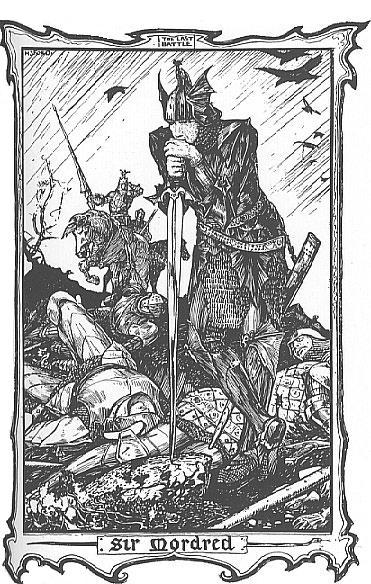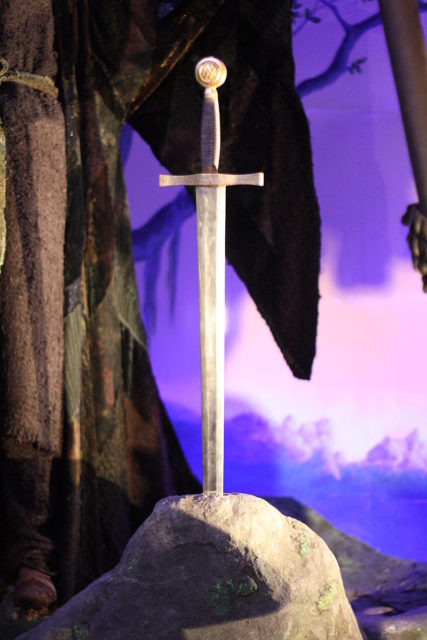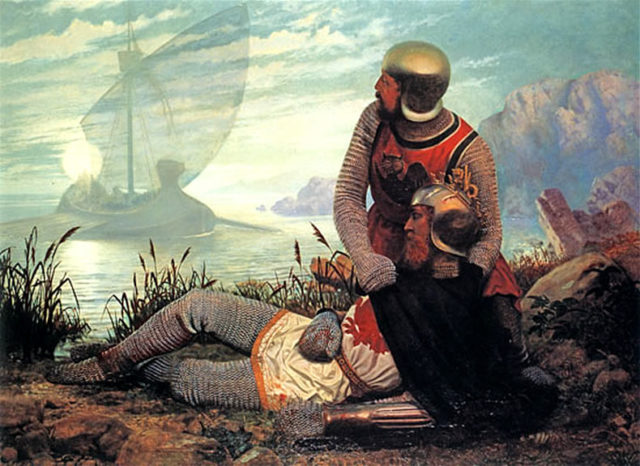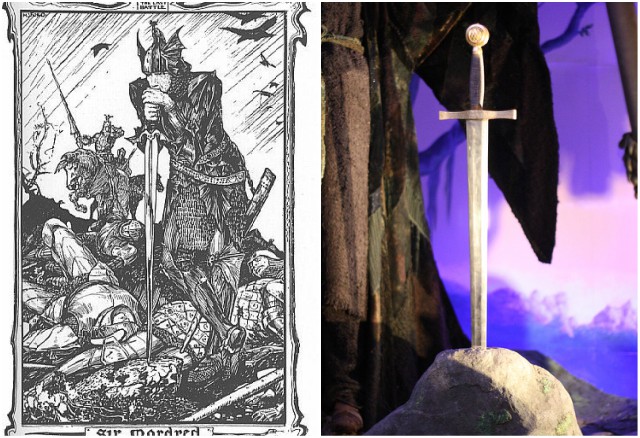The legend of King Arthur and the Knights of the Round Table has been told and retold for over one thousand years. It is a story of biblical proportions about the rise and fall of a king, betrayal and the eternal inner struggle between good and evil.
There is hardly a person who hasn’t at least heard about the mythical Excalibur drawn from the stone. The sword that gave Arthur the power of belief and united an entire nation.
The tales of the gallant warrior of Camelot exceeded the boundaries of folklore and inspired numerous interpretations throughout the centuries. Influenced by the legend, many authors were compelled to go in a different direction; to ignore history completely, and rewrite the story from scratch.

The 19th century gave rebirth to King Arthur’s saga and over the years it became part of pop culture and our collective consciousness. The legend continues to live on, not just in literature, but also adapted for the stage and the big screen.
The latest retelling of the Arthurian legend recently appeared in cinemas across the world. Directed by Guy Ritchie, “King Arthur: Legend of the Sword” is just another attempt by Hollywood to turn this ancient old tale to a franchise. But, just by seeing the numbers at the box office, it’s fair to say that they failed yet again. And this time, maybe permanently.

The film got mixed reactions from the public and critics gave it pretty unfavorable reviews. The filmmaker, previously adored for such endeavors as Snatch, Lock Stock, and Sherlock Holmes tried to tackle one of the oldest stories in the book and reenergize it with his own unique cinematic style.
Then how come the public was so disappointed? On one side, many complained that the movie was all style and no substance, too idiosyncratic to be relatable. Others thought that the director turned this story into just another generic blockbuster, devoid of any real emotion whatsoever. Or maybe, it’s simply the allegorical and symbolic nature of the story that makes it impossible to be adapted into a movie.

Hollywood is pretty well known for having an affinity for making remakes, sequels, and reboots of any kind. And this is no different. They tried several times before to make a worthy version of this noble tale, but all of those film adaptations lacked success and failed to find an audience.
In comparison, John Boorman’s 1981 interpretation of the legend, simply called Excalibur was declared to be a visual masterpiece that had a singular artistic vision. However, even then, the crude nature of the story and the controversial subject matter that the film tried to tackle proved too much for the general public, who wanted to get a more straightforward fantasy action adventure.

Nonetheless, what’s truly intriguing in these so-called adaptations is not how good or bad the films actually are. That’s beside the point. It’s simply the fact just how one single story can inspire totally different point of views.
Richie’s film is basically an origin story of King Arthur and Boorman’s Excalibur is a greek tragedy. King Arthur that exists in the myths is entirely different than the real ‘historical’ figure, whose existence is still a matter of debate among historians.

Everything that’s known about him or any detail of his life is mostly through folklore and literary invention, that just kept changing throughout the centuries. This is what has allowed the legend to feel vibrant and alive even to this day – maybe the story should only exist solely in our imagination and nowhere else.
